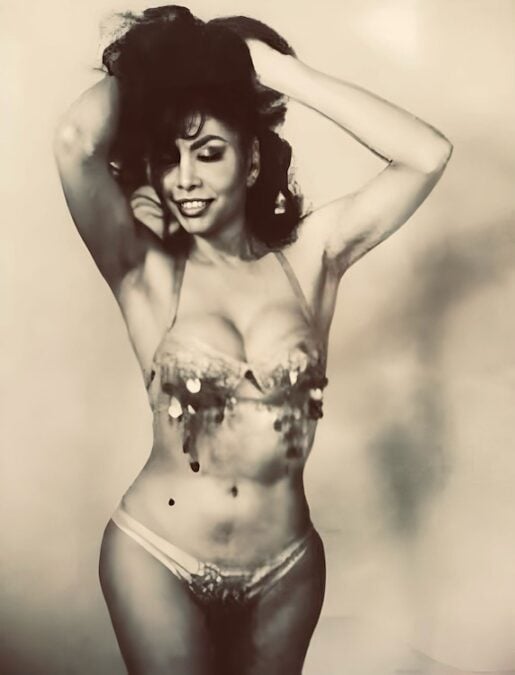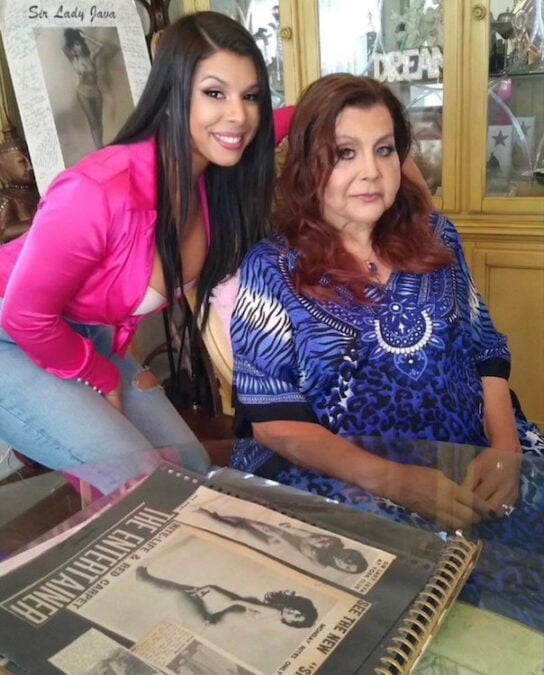
Almost 50 years before “RuPaul’s Drag Race” and “Pose,” Sir Lady Java was a pioneering transgender activist fighting against a Los Angeles law that restricted drag performance. Photo: Sir Lady Java
Almost 50 years before “RuPaul’s Drag Race” and “Pose,” Sir Lady Java was a pioneering transgender activist fighting against a Los Angeles law that restricted drag performance.
She spoke truth to power by challenging the Los Angeles police and the City of Angels.
Also, as a Black gender non-conforming woman, she witnessed a point in history – The intersection of discriminatory law enforcement tactics targeting Black and brown as well as queer communities in Los Angeles in the 1960s. These types of police campaigns also took place in numerous cities across the U.S.
Sir Lady Java
Her trailblazing efforts will be recognized Sunday as the Community Grand Marshal in the LA Pride Parade.
“This year, we are especially excited to celebrate Sir Lady Java, a true icon, as our Community Grand Marshal,” Gerald Garth, vice president of community programs and initiatives at Christopher Street West, the nonprofit group that produces the annual LA Pride celebration, said in a statement.
Sir Lady Java, 81, will be accompanied by ‘Pose’ cast alum Hailie Sahar, who will portray her in an upcoming feature film about her storied life.
“It was very important to LA Pride that we lift history and legacy as a part of the parade this year,” Garth said. “This is a new and exciting moment.”
Born and raised in New Orleans, Sir Lady Java was a performer and waitress in 1960s Los Angeles.
But the Los Angeles police ended to her career.

“Pose” cast alum Hailie Sahar, who will portray Sir Lady Java in an upcoming feature film about her storied life, visits her at home. Photo: Sir Lady Java
Rule #9
Passed in 1958, LA’s notorious ordinance Rule #9 said bar owners couldn’t hire anyone who performed as the opposite sex to the one they were assigned at birth.
The impacts of the law reached a fever pitch for her in 1967 during a run of performances at the Redd Foxx, a Black-owned nightclub on La Cienega Boulevard that was named for its owner, renowned stand-up comedian and actor John Elroy Sanford.
Sanford applied for a performance permit, but in October 1967, the Los Angeles Police Department denied the request.
After the permit was refused, she protested at the Redd Foxx, arguing for her right to work. Pictures from the demonstration show Foxx pleading with her to stop picketing outside the club.
Historic protest, court case
Sir Lady Java made history because she was the first person to not only protest the law, but also challenge it.
The ACLU sued the city on her behalf, but the court refused to hear the case because only bar or club owners could file a lawsuit.
The ACLU couldn’t find a bar owner willing to sue Los Angeles, and the case was dismissed, but her protest did raise awareness and visibility about the issue.
Two years later, the ordinance was overturned in a separate lawsuit.
With the law overturned, Sir Lady Java returned to the stage and continued performing in LA nightclubs in the 1970s and early 1980s.
